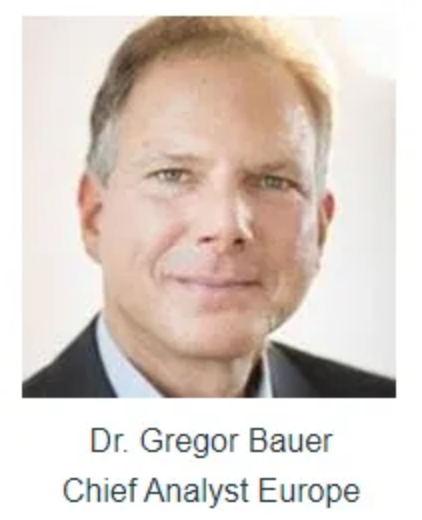Today, I want to discuss two biotech companies that look promising for the rest of the year. First, Pfizer. The company was established in 1849. It is now one of the world's largest pharmaceutical companies. Since 2020, Pfizer has focused only on patent-protected drugs. The generics and non-patent-protected drugs (Upjohn), and consumer products have been spun off. The product portfolio includes ten blockbusters with annual sales of more than $1 billion. The essential drugs are Eliquis, Prevnar, and Ibrance. Pfizer had an excellent start to the year.
| | | | | | These Two Biotech Stocks Can Make a Run |
|
| Dear Reader,
Today, I want to discuss two biotech companies that look promising for the rest of the year.
First, Pfizer (PFE).
The company was established in 1849. It is now one of the world's largest pharmaceutical companies. Since 2020, Pfizer has focused only on patent-protected drugs. The generics and non-patent-protected drugs (Upjohn), and consumer products have been spun off.
The product portfolio includes ten blockbusters with annual sales of more than $1 billion. The essential drugs are Eliquis, Prevnar, and Ibrance.
Pfizer had an excellent start to the year.
First-quarter sales jumped 44.6%. Profits increased by 43.7%.
The No. 1 growth driver was vaccines, with sales more than tripling to $4.9 billion.
The Corona vaccine Comirnaty developed jointly with BioNTech (BNTX) alone, flushed nearly $3.5 billion into the coffers. But cancer drugs were also impressive, growing 17.5% to $2.9 billion.
Given the strong business performance, management has significantly raised its guidance for the year.
It could be a huge year for Pfizer. The company now expects sales of $70.5 billion to $72.5 billion and adjusted earnings of $3.50 to $3.65 per share. The group estimates Corona vaccine sales at $26 billion. The targets appear realistic.
In May, the U.S. Food and Drug Administration (FDA) and its European counterpart, the EMA, granted expanded approval. As a result, the Corona vaccine may now be injected into children and adolescents between 12 and 15. Safety and efficacy in children aged six and older are also being tested. Robust data could be available in September.
A pill against corona is also in clinical development. The drug is to be taken at home by infected persons at the first symptoms of the disease. The aim is to slow down the progression of the disease and prevent severe courses of the disease and thus hospitalization. Approval could be granted before the end of the year.
Who Else Can Succeed?
My other pick is AbbVie (ABBV), formed on Jan. 1, 2013, following the split of Abbott Laboratories. With the acquisition of Allergan in May 2020, AbbVie became one of the largest pharmaceutical companies in the world. The pharmaceutical company develops drugs for multiple sclerosis (M.S.), cancer, Alzheimer's disease, and Parkinson's disease. In addition, the acquisition of Allergan broadened the portfolio with Botox and the aesthetics division, among others.
AbbVie has completed the integration of Allergan. Accordingly, sales increased 37.7% to $45.8 billion last year. Profit fell 41.4% to $4.6 billion and was due to the special effects of the acquisition. The quarterly dividend was increased to $1.30 per share due to the company's stable financial position. In the current year, AbbVie plans to continue to grow. Sales are forecast at $55.7 billion. Earnings per share are expected to be between $7.27 and $7.47.
In the 1st quarter, sales increased 51% to $13 billion. However, earnings per share remained flat year-over-year. Among divisions, the biggest winner was neurology. With an increase of more than 100%, sales there totaled $1.25 billion. The Aesthetics division also saw significant growth. Sales there rose 35% to $1.14 billion. Botox alone generated $477 million, or 44.7% growth. In terms of sales markets, the home market in the U.S. saw the most increase. Sales there rose 57.1% to $9.7 billion.
The acquisition of Allergan makes AbbVie a pharmaceutical giant. Financially, things are better for AbbVie after the purchase. Equity was lifted out of the negative territory and is now slightly in positive territory with an equity ratio of 8%.
The company does have massive debts, and cash and cash equivalents have been considerably thinned out, partly due to the acquisition.
However, the new portfolio already demonstrates strong growth and good diversification.
This weekend, I'll be turning my attention to inflation. You know it's not slowing down.
So, I'll tell you how to address it.
Enjoy your day,
|
|
| | | Dr. Gregor Bauer
Chief Analyst, European Markets |
|
| | |
|
|






No comments:
Post a Comment